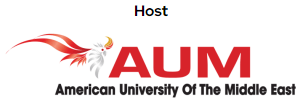SUSTAINABILITY AWARD
2017’S “OSCARS” OF EDUCATION: OPEN FOR APPLICATIONS
Dear colleague,
Last Thursday, QS released the fourteenth edition of the QS World University Rankings. The table, providing comparative data on 959 universities from 84 nations, provided a truly global overview of educational performance.
Among the many trends illuminated by this year’s instalment was the uniform success enjoyed by Australian universities. The nation is again home to one of the world’s top 20 institutions, has four of the top 50, and saw numerous improvements across the full range of metrics used by QS to compile the ranking.
One of those metrics is citations per faculty, used to measure institutional research impact, and it’s perhaps here that Australian institutions records their most noteworthy improvements: all of Australia’s top 11 institutions have raised their levels of research intensiveness over the past year, with Australian National University again among the world’s top 50 research institutions.
However, over the last two years – as Reimagine Education has grown – it has become clear that Australian universities also excel at teaching innovation – that which Reimagine is designed to award. Australian institutions such as Deakin, Queensland University of Technology, and the University of Technology Sydney do not feature in the top 50 of QS’s rankings, but have been rewarded for their commitment to improving teaching and learning outcomes at December’s Reimagine Education Awards ceremonies.
Combining Reimagine successes with rises up QS’s rankings offers a propitious picture for Australia’s higher education sector, and it is therefore apt that this issue of your newsletter offers a highly Australian focus. Five educators from the country’s universities outline their work to enhance student engagement, computational literacy, and, in the case of Rosanne Quinnell, botanical literacy.
We begin with Professor Peter Corke of Queensland University of Technology. His team, acknowledged at the 2015 Reimagine Education Awards, have spent the intervening 18 months furthering their mission to bring robotics education to the world.
Following him are three contributors from the University of Sydney, again a global top-50 university. Owen Brasier provides an overview of his attempts to empower teachers to improve computational literacy, acknowledging the issues that face those seeking to achieve nationwide curriculum implementation.
We then move away from the Computer Science faculty to the School of Life and Environmental Sciences, where Rosanne Quinnell has, in ingenuitive fashion, sought to unite mobile technology and botanical education. Her enthusiasm for ensuring that students achieve both digital and ‘botanical’ literacy is commendable, and evident in her article.
Improving student engagement in the classroom is invariably on the agenda of educators worldwide, and the contemporary data revolution – the topic of the recent EduData Summit conference – provides faculty with unprecedented ways of measuring this hitherto-nebulous construct. Dr. Danny Liu, Senior Lecturer in Academic Development and Leadership at the University of Sydney, has created and implemented a cutting-edge platform, the SRES, designed to “put faculty in control of […] academic engagement and performance data”.
Mobile learning is also on the agenda for the author of our final article, Roger Edmonds of the University of South Australia. His overview of his institution’s move to incorporate location-based mobile learning games into his curriculum is both rigorous and accessible. It is also another example of how both mobile technology and gamification can be effectively used to improve learning outcomes – a recurrent theme from this edition.
We again eagerly anticipate keen participation from Australia’s universities in this edition of the Reimagine Education Awards, but it remains a highly global enterprise, with applications and delegates from over 50 countries.
Those whose pedagogy is enhancing teaching, learning, or employability outcomes are, as ever, invited to apply for this year’s Reimagine Education Awards, open until the 31st July 2017, and to join leading universities and technology companies in Philadelphia in December.
Regards,
Jack Moran
Editor

